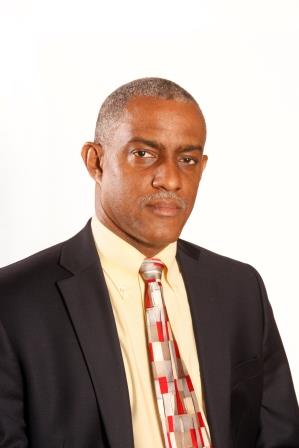
Caribbean leaders will meet in Suriname this week to push forward the region’s technology development agenda. The South American country will host an executive meeting of the Caribbean Telecommunications Union (CTU) on April 8th and 9th at the Hotel Krasnapolsky, Paramaribo.
The CTU’s executive council is made up of permanent secretaries from ministries with responsibility for telecommunications in the CTU member states. The council has oversight responsibility for the work of the CTU secretariat.
At the meeting, Bernadette Lewis, secretary general of the CTU, will present to the executive council chairman her report on the performance of the organisation and the progress of its recent and ongoing projects.
Cleveland Thomas, International Telecommunication Union (ITU) area representative for the Caribbean, and Albert Daniels, Internet Corporation for Assigned Names and Numbers (ICANN) global stakeholder engagement manager for the Caribbean, are also expected to make presentations at the high-level meeting.
The CTU was established by the heads of government of the Caribbean Community (CARICOM) in 1989 in Nassau, The Bahamas. The latest executive council comes on the heels of the 25th intersessional meeting of the conference of CARICOM heads of government, a top-level meeting which underscored the significant role of regional leadership in designing and implementing the Caribbean’s technology development agenda.
One highlight of the executive council meeting will be a video presentation by leadership development expert, Dr. Farid Youssef of the Faculty of Medical Sciences, The University of the West Indies, Trinidad and Tobago. Dr Youssef will identify drivers for effective leadership in the Caribbean context.
Managing Caribbean Spectrum
The two-day event is sandwiched in a weeklong series of regional technology development meetings hosted by the government of Suriname, through its Ministry of Transport, Communications and Tourism, under the leadership of Minister Falisie Josef Pinas.
On April 7, Pinas delivered welcome remarks at the inaugural meeting of the Spectrum Management Steering Committee (SMSC), a multi-country team of senior government policy makers and industry regulators.
The inaugural SMSC meeting comes as the Caribbean Telecommunications Union (CTU) is rolling out its Harmonised Caribbean Spectrum Planning and Management project across its fourteen member countries. The project, which was formally launched in Montego Bay, Jamaica in December 2013, is being undertaken with technical support from the Inter-American Development Bank (IDB) and Compete Caribbean. It aims to harmonise practices and procedures for spectrum management across the countries.
The Spectrum Management Task Force (SMTF), a multi-country, multi-stakeholder technical committee of government, regulatory, private sector, academic and civil society personnel, held its first workshop in February. Conducted in collaboration with the ITU and the Caribbean Disaster Emergency Management Agency, the inaugural SMTF workshop focused on emergency telecommunications.
On April 7, the SMSC started building on the work of the SMTF. The SMSC is aiming to develop a regional frequency allocation table, which is intended to facilitate the adoption of common frequencies for disaster management and emergency telecommunications.
On the last two conference days, April 10th and 11th, the CTU will conduct a pair of workshops designed to highlight adaptive technologies available to deaf and blind people. Presentations will focus on ways in which people with visual and auditory impairments can use the Internet to make the most of opportunities for education, training and employment. Some sessions will highlight specific devices that can help people overcome the loss of sight and hearing, using popular platforms such as Apple’s iOs and Google’s Android.
 PORT OF SPAIN. Local and regional technology experts will gather in Port of Spain, Trinidad later this month to share their knowledge with participants in a roadshow organised by the Internet Corporation for Assigned Names and Numbers (ICANN).
PORT OF SPAIN. Local and regional technology experts will gather in Port of Spain, Trinidad later this month to share their knowledge with participants in a roadshow organised by the Internet Corporation for Assigned Names and Numbers (ICANN).
 "We are inviting governments, the private sector, civil society, and other Internet organisations from the whole world to join us in developing this transition process," said Fadi Chehadé, ICANN's President and CEO. "All stakeholders deserve a voice in the management and governance of this global resource as equal partners."
"We are inviting governments, the private sector, civil society, and other Internet organisations from the whole world to join us in developing this transition process," said Fadi Chehadé, ICANN's President and CEO. "All stakeholders deserve a voice in the management and governance of this global resource as equal partners."